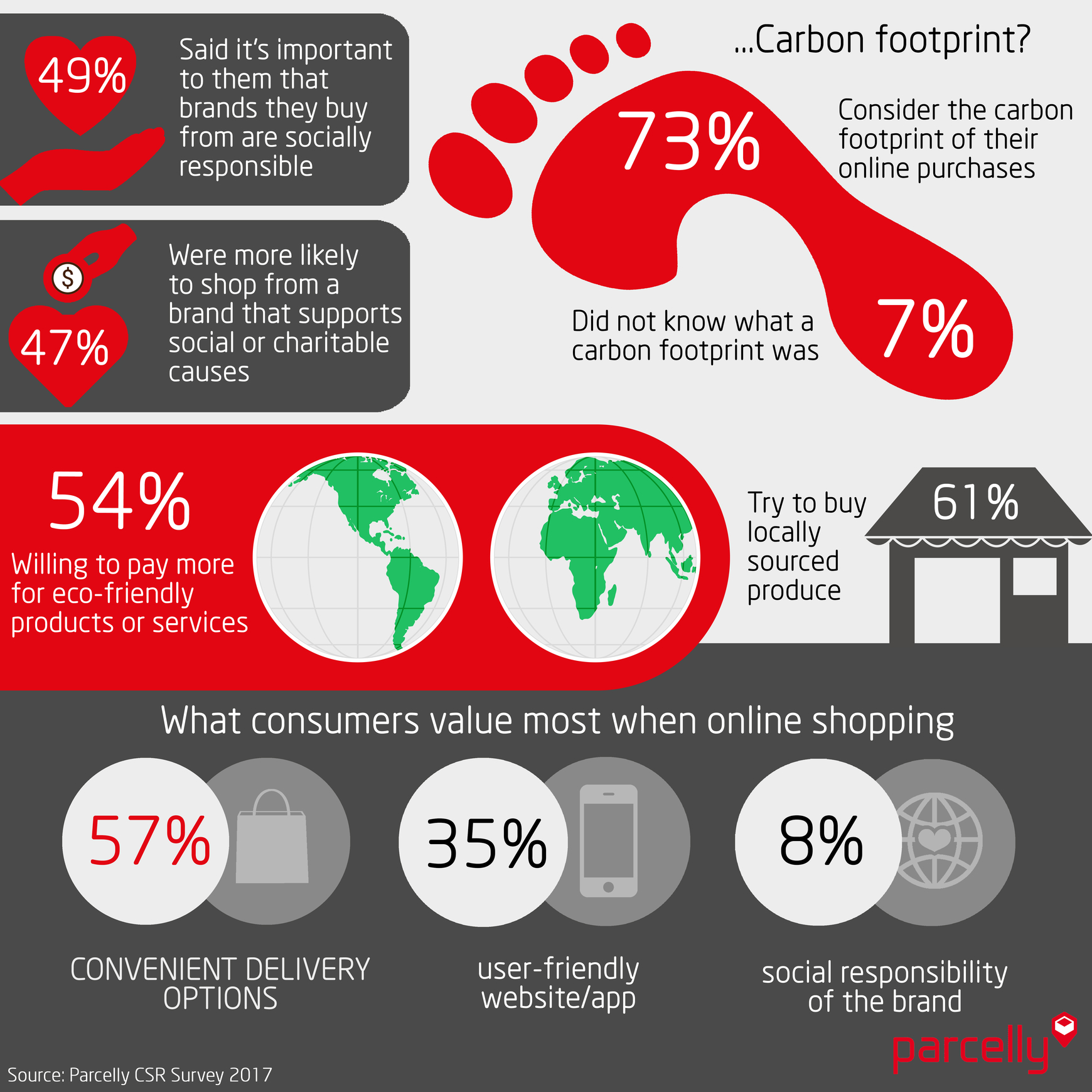08-09-2017
Following our 2016 research piece on Online Shopping Behaviour, we wanted to dive into a new topic and look at how Corporate Social Responsibility (CSR) can have an impact on buyer behaviour.
The 2015 'Sustainability Imperative Report' from Nielsen found that globally, 66% of consumers were willing to pay more for products and services from companies who are committed to having positive social and environmental impacts, and noted that this figure has been growing year-on-year.
We wanted to investigate these attitudes towards CSR in the UK. Using an online survey, we asked over 200 participants 6 questions about their views on Corporate Social Responsibility and online shopping. With overall 54% of our respondents willing to pay more for these sustainable products and services, we can confirm that CSR does play a role in the heart of consumers!
In summary, this is what we found out:

From our results, respondents were fairly evenly divided on whether Corporate Social Responsibility had a real impact on their purchasing decisions. 49% of respondents said it’s important to them that brands they buy from are socially responsible, whilst 45% said this is not something they usually think about. Similarly, in a separate question 47% of respondents said they were more likely to shop from a brand that supports social or charitable causes. But whilst Corporate Social Responsibility may not impact all consumers in their decision to purchase from a brand, it seems that this is still something consumers find important, even if they don't act on it.
Research from Reason Digital this year found that 96% of consumers agreed it is important for companies to have good social and environmental policies, and 62% of customers worldwide have said they would switch brands if those they were using didn't have a clear social purpose. So perhaps there is no clear-cut relationship between CSR and consumer purchasing behaviour? The Reason Digital report explores some of the demographic factors that moderate this relationship between CSR and consumer behaviour finding that income, gender and age all have a notable influence.
A further interesting finding from our survey was that 61% of respondents made an effort to purchase locally sourced produce. This result reflects recent trends as other research has found consumers are demanding more locally sourced foods, and major food manufacturers such as Weetabix are pledging to use local ingredients in their products (Morepeople, 2016).
A huge 73% of respondents said they consider the Carbon Footprint of their purchases, and in research from the Carbon Trust (2016) 56% of UK consumers said they would feel more positive about a company that has made an effort to reduce the carbon footprint of their products, indicating that this may be an important consideration for businesses.
As our final question, we asked respondents what they value most when online shopping. The results showed that 57% see convenient delivery options as most valuable, whilst only 8% valued social responsibility of the brand. A moderate 35% stated that a user-friendly website or app was most important to them.
Underpinning the purpose of Parcelly's service, it is becoming more important for online retailers to provide greater customer convenience options. Temando, The State of Shipping in Commerce 2017 found that 54% of shoppers would abandon their order and buy from an Online competitor if the delivery option they seek was not provided. A further interesting point was that 74% of shoppers want click&collect shipping options, whilst only 47% of retailers currently offer them.
Parcelly is filling a gap in the market, providing an innovative click&collect check-out option that fits around busy consumers’ lives. Our app-based service puts customer convenience first, allowing online shoppers to decide where, when and how they receive their parcels. At the same time, we strive to have a positive social impact on local communities and are doing our bit to reduce the negative environmental effects of parcel deliveries.
Source: Parcelly
